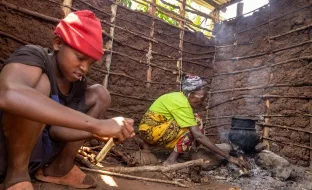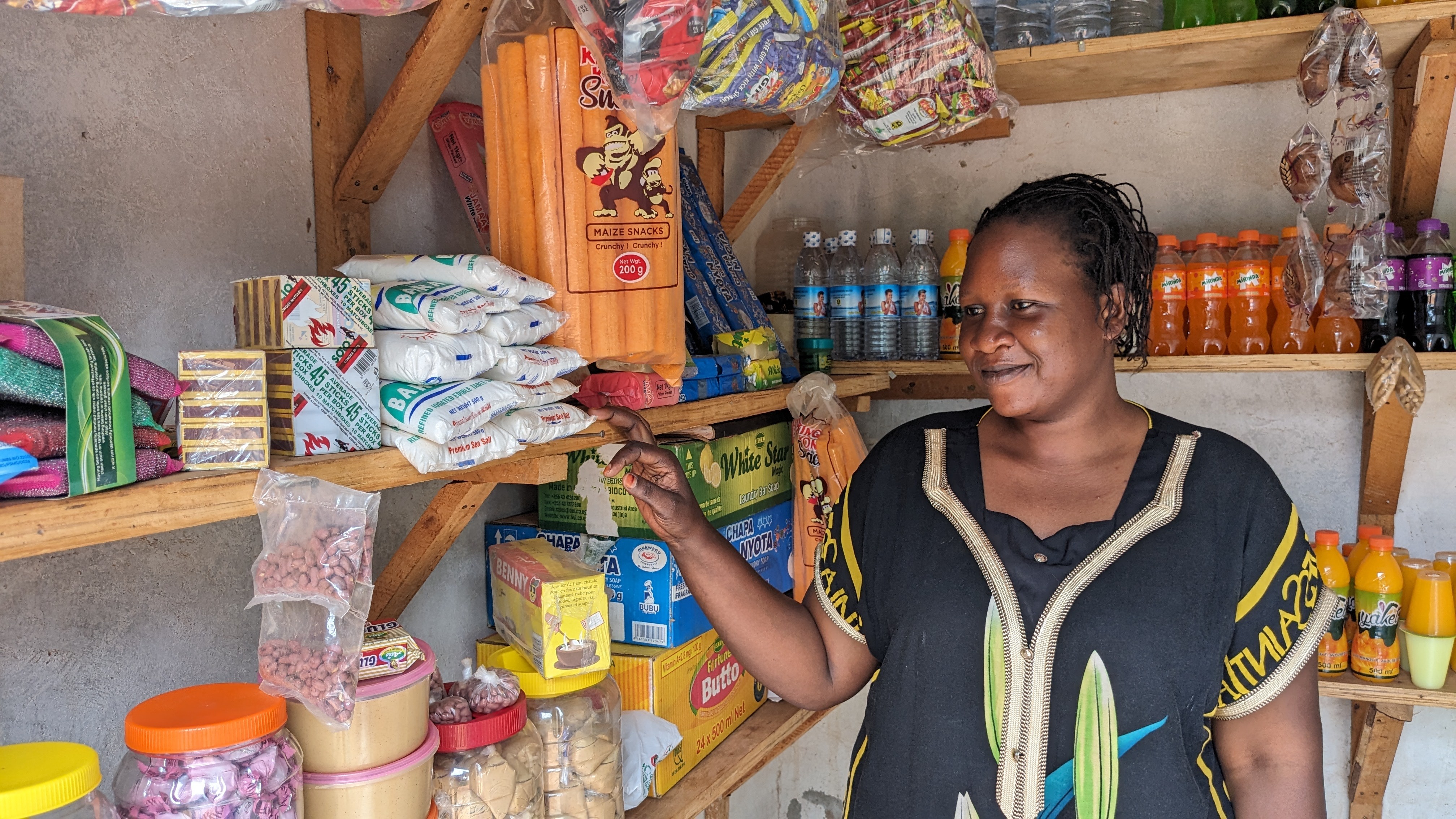A story about GiveDirectly’s universal basic income initiative came out last week, airing multiple times on All Things Considered with a feature on the front page of NPR’s homepage. The piece was the first in a series about unconditional cash transfers and their potential to end extreme poverty. Elsewhere, a new tech founder joined the list of basic income supporters, Slack CEO Stewart Butterfield. Beyond Butterfield, basic income continued to get steady coverage from outlets in discussions about the future of tech. USAID’s new head, Mark Green, had his first day on the job last week and NPR shared a few choice quotes from him for the occasion. Lastly, the Kenyan and Rwandan elections took place last week with Kenyatta winning 54% over Odinga 45% in Kenya, and Kagame receiving 99% of the vote in Rwanda.
GIVEDIRECTLY IN THE NEWS
1. How To Fix Poverty: Why Not Just Give People Money?
NPR, Nurith Aizenman, August 7, 2017
It’s a text alert from an American charity called GiveDirectly. Last fall, GiveDirectly announced that it will give every adult in this impoverished village in Kenya an extra $22 each month for the next 12 years — with no strings attached. The money is wired to bank accounts linked to each villager’s phone. The alert is the signal that the latest payment has posted. Everyone starts cheering. Some of the younger women break into song.
CASH TRANSFERS IN THE NEWS
2. Does Cash Aid Help The Poor — Or Encourage Laziness?
NPR, Nurith Aizenman, August 9, 2017
You don’t have to convince Likezo Nasilele that giving people a small but steady stream of cash with no strings attached may be the smartest way to fix poverty. Just a few years ago Nasilele and her husband, Chipopa Lyoni, couldn’t even afford to feed their four children properly. Then Nasilele, who lives in a rural village in Western Zambia, lucked into an experimental government program that has provided her with up to $18 every other month. In the 2 1/2 years since, she and her husband have more than doubled the money by using it to start several businesses.
3. EU: 850,000 refugees in Turkey benefit from cash assistance
ABC News (04/06/2023 link updated to National Post as ABC link was broken), August 4, 2017
A European Union official says more than 850,000 people are now benefiting from a EU-funded project that provides cash assistance to the most vulnerable refugee families in Turkey. The program, billed as the EU’s largest humanitarian program, provides debit cards to the most disadvantaged families allowing them to buy food and meet other needs.
4. Mobile money scheme set to benefit rural Iraqi families, says UN food agency
Reuters, Eloise Reader, August 2, 2017
Families in rural Iraq will get access to urgently needed cash to invest in farming via a new money transfer program on mobile phones funded by the Belgium government, the United Nation’s food agency said on Wednesday. The Food and Agriculture Organization (FAO) said the cash-for-work program will benefit over 12,000 farmers in more than 30 villages by providing a secure means of receiving funds to restart or expand agricultural activities.
BASIC INCOME IN THE NEWS
5. Another tech titan joins Elon Musk and Mark Zuckerberg in supporting free cash handouts for Americans
CNBC,Catherine Clifford, August 9, 2017
One by one, some of the biggest names in tech are publicly supporting the idea of giving cash handouts to all Americans.The latest is self-made multimillionaire Stewart Butterfield, the CEO and co-founder of the workplace chat program Slack, which is reportedly in the process of raising $500 million at a $5 billion valuation. Butterfield also co-founded Flickr, which sold to Yahoo, reportedly for $35 million. He joins Tesla and SpaceX CEO Elon Musk, Facebook CEO Mark Zuckerberg and Y-Combinator president Sam Altman, who all say society will both need and benefit from universal basic income (UBI), a guaranteed cash payment given to every resident irrespective of employment status.
6. The latest experiment in Finland proves that universal basic income works – so why not bring it to the UK?
The Independent, Frances Coppola, August 1, 2017
Universal Basic Income is hot news. As support for it grows across the political spectrum, governments around the world are embarking on pilot studies to evaluate its potential. In a study currently being conducted in Finland, participants are reporting lower stress levels and a greater incentive to work. With record levels of reported stress, and the job market in the UK becoming harsher and more competitive, it’s time the UK seriously considered introducing a Universal Basic Income.
7. Charitable Sleuths Chase Donor Efficiency
The Wall Street Journal, Anne Kadet, August 9, 2017
If you want to reduce animal suffering, why not cut animals out of the food chain entirely, suggested Erin Kim, communications director with New Harvest, a nonprofit that funds research on cellular agriculture. Makes sense to me. And to others at the gathering as well. This was, after all, a meetup of Effective Altruism NYC—the local incarnation of a global movement embraced by people committed to benefiting others in the most efficient way possible.
8. 5 Quotes From The Head Of USAID On His First Day On The Job
NPR, Courtney Columbus, August 9, 2017
Mark Andrew Green, the new head of the U.S. Agency for International Development, kicked off his first day on the job with a speech to hundreds of employees. In his speech on Monday, he focused on what they can expect from him and his vision for USAID.
9. U.N. urges action to avert famine threatening 20 million people worldwide
Reuters, Riham Alkousaa, August 9, 2017
UNITED NATIONS (Reuters) – The U.N. Security Council on Wednesday called on warring parties in Yemen, Somalia, South Sudan and northeastern Nigeria to allow humanitarian aid access and urged countries to donate more money to avert famines threatening 20 million people.The United Nations appealed in February for $4.9 billion to combat what it calls the largest humanitarian crisis since the world body was formed more than 70 years ago, but U.N. spokesman Stephane Dujarric said only 51 percent of that amount has been received.
10. U.S. expands food, health aid to Ethiopia, Kenya amid crisis
Reuters, Anne Kadet, August 3, 2017
WASHINGTON (Reuters) – The Trump administration gave $169 million to feed people facing starvation in Ethiopia and Kenya, USAID said on Thursday, adding to earlier assistance for those suffering from drought and conflict in four other nations. USAID, the U.S. government’s humanitarian relief agency, said in a statement that it had provided $137 million in aid for Ethiopia and nearly $33 million for Kenya.

